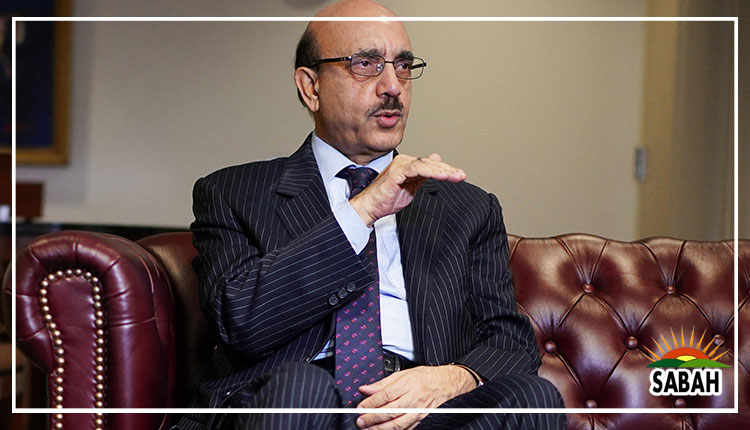Floods calamity deteriorating day by day, damages to exceed $30 billion: Masood Khan
WASHINGTON, Sep 13 (SABAH): Pakistan’s Ambassador to the United States Sardar Muhammad Masood Khan has said that the floods in Pakistan were becoming more devastating. The cumulative damage of climate change would be astronomical, he said. “It is a very difficult situation. We have disasters within the mega disaster. We have water borne diseases, displaced people, crops and cattle destroyed,” stated the Ambassador.
“The United Nations Secretary General has said that the estimated cost for the total loss and damages would exceed $30 billion,” said Pakistan’s envoy to the United States. Ambassador Masood Khan made these remarks while talking to a Turkish broadcaster, “TRT”.
While thanking UN Secretary General for his visit to Pakistan and President Erdoğan for leading the effort to mobilize Turkish government and society to support the affected people of Pakistan, the Ambassador said that Pakistanis have resorted to their resourcefulness to cope with the disaster but, he continued, “we can’t do it alone and therefore appealed to the international community to help us.”
The Ambassador said that Pakistan was vulnerable even before the floods as it was facing food insecurity issues due to situation in Ukraine. “We were trying to scramble our economy towards viability and we were succeeding. But now there is this huge disruption,” continued the Ambassador.
Recounting huge damages incurred to infrastructure in the submerged areas, Masood Khan said that Pakistan would have to invest heavily in recovery, rehabilitation and reconstruction of the affected areas. “We would rely on our national resources. But since these floods are a direct consequence of deadly climate change, we would hope that the international community, particularly the developed countries and the United Nations, will step forward to give climate support to Pakistan,” the Ambassador emphasized.
To deal with any such calamities in future, the Ambassador said construction sector needed to be regulated along with instituting a better system for conservation of water resources. He said that better planning for the growing population would be needed while formulating a future strategy for disaster resilience.












